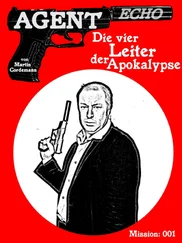My gun is oiled and loaded with eight soft-point nine millimetre bullets. I was never the best shot on the range at Parbold when I taught myself how to use it, but I was far from being the worst. My marksmanship was good enough to make some of the men embarrassed. And I remember well the advice given me by Boland on firing a pistol. Aim for the centre of the target, he said. And keep on squeezing the trigger until the gun is empty. Never trust to accuracy. Trust to the percentages. Blow the life out of what you wish to kill. Never stop until you’re out of ammunition.
I liked Harry Boland. He was a good and spirited man. I liked him even before his intervention saved my life. Mick was wrong over their falling out and the breach depressed Mick afterwards, I knew. Anyway, Boland taught me something that might save my life. If it does, I’ll walk to Saint Theresa’s Church in Birkdale and light a candle and say a prayer for the safe delivery of his soul. Do I need to? I imagine both their souls were safely delivered. They were good men. They were the best of men, says she, having re-encountered the worst.
I feel weary and defeated after Vera’s call. I have never felt less like a party in my life. But I will go. It’s what we do. It’s the modern way. In a sense, I suspect that in this modern age, it’s what we’re all of us for. There is a painting in one of the rooms at the Atkinson Gallery. It portrays this mad whirligig. The passengers aboard are frenzied, their grins crazed and their knuckles white with the insane strain of hanging on to the ride. I cannot remember the name of the painter. It is someone from the Modernist school. But it is us he has portrayed in this painted metaphor. It is us, in our hysteria and hurtle and addiction to novelty and the future.
Suzanne groaned. She was in the gloaming, now, outside the Fisherman’s Rest. She was amid the creeping shadows of the night. And she had in her hands a document that had told her in an evening more about the character of Michael Collins than she had learned from the known sources in a year. And Collins wasn’t even the point of what she’d been reading. Her glass was empty. She wanted another drink. She had about a third of Jane Boyte’s deposition to go.
‘God, you were wonderful,’ she surprised herself by saying out loud. ‘You were really something, Jane.’ Suzanne wiped at a tear she could not suppress or contain. ‘You were brave and true.’ She sniffed. She bent over the typed pages and continued to read.
June 15th, 1927
The ball was a spectacular success. The ballroom at the Palace was decked out in balloons and taffeta and silk ribbon of every shade and two bands shared a swivel stage. There was a full orchestra for half of the evening. And that alternated with a jazz band playing the wild and frenzied music of New Orleans. It was sweltering in the heatwave. Someone at the hotel had come up with the clever idea of ice sculptures to cool the dancing throng. They decorated the ballroom on two opposing sides, depicting a four-funnelled ocean liner running almost the full length of one and a great, streamlined steam locomotive on the other. Someone told me that the steam engine fashioned from ice was modelled on the prototype of one being built at York to break the world rail speed record. By the end of the evening, there were puddles on the parquet from these perishable masterpieces adorning the room. But they were very finely wrought and kept the air cool and breathable for the crowd in the cigar smoke under the bright, burning electric globes of the ballroom’s giant chandeliers.
I went with my father, who looked fraught and sad. There has been another mishap at the yard and the men are whispering that Spalding’s boat is cursed. Work is not so plentiful in Liverpool Harbour as to make them boycott the job. Not yet, at least. But men involved with the sea are always superstitious. And the project is taking its toll on my father’s mood and perhaps also his health. I don’t think he is sleeping well. I don’t think he is sleeping much at all. He usually teases me about the way I wear my hair and my choice of clothes and my insistence on smoking in public. He does it good-naturedly. It has become a sort of humorous ritual between us. But on this occasion I think my appearance barely registered with my father.
There does not seem to me to be very much wrong with Harry Spalding’s luck. He did not attend the ball. But he was at the hotel. He is no longer resident there, of course, but can often be found in the evening in the gaming room. On the night of the ball he won five thousand pounds at the blackjack table. It is a colossal sum of money. A streak like that at cards does not come to a man who sails an unlucky boat. If his boat really was unlucky, it would not have survived the worst storm in living memory. It would have sunk under him. Though I have heard an ugly rumour about the fate of his crew during the storm. Spalding says he was sailing alone. The Dublin harbour master insists there were two French crewmen aboard. The log should settle the matter. But so far, Spalding has been reluctant to produce the log. There might be an enquiry and there might not. Probably there will not. Whose jurisdiction covers the fate of two French deckhands aboard an American-registered vessel in the Irish Sea? Perhaps Spalding is telling the truth and he was sailing the Dark Echo alone. He is a very considerable yachtsman. The only thing I know with certainty is that my father will be well rid of the boat when the repairs to her are finally completed. I may not believe her cursed. But I think that he does.
Pierre Giroud sent a bottle of champagne to our table. It was a nice gesture from a sweet man who would be distraught to hear himself described as such. I don’t mean to sound patronising. He is a sweet man. He is also an accomplished flier and tall and good-looking in his Gallic way. But the shadow cast by Mick Collins is a long one. The affairs I have had in the years since my return from Ireland have been tepid. My heart was not in any of them. It will not always be like this and I am fully aware that fast cars and aeroplanes are my compensation for those sensations most people enjoy between their sheets. It will not always be like this, but poor sweet Pierre Giroud is wasting his time and squandering his money buying Moët & Chandon in the hope of winning over this particular girl.
July 13th, 1927
I have deliberately stayed away from this journal for a full four weeks, concerned on rereading it that Harry Spalding was becoming an unhealthy obsession with me. But something occurred this afternoon that has left me badly shaken. It has also confirmed some of my worst suspicions about that monster walking the streets of Southport in the urbane and civilised guise of a man. It happened on Lord Street, near the junction with Nevill Street, as I was crossing from west to east after collecting my wristwatch from the jeweller’s shop where it was being repaired. I almost collided with him. I was fastening the strap of my watch and not really paying attention to what was in front of me when I gained the pavement. I stopped at the sight of Spalding’s broad back and pale trilby hat. He was switching his cane against the heel of his shoe and staring at the cenotaph. I saw him stiffen as he became aware of me. He took off his hat slowly with his free hand. But he did not turn and I did not move an inch from where I stood. He chuckled. And he spoke.
Great days, Jane, this monument celebrates. I do believe they were the making of me.
I did not move. The sun was very bright above us. The white stone of the memorial was quite dazzling and Spalding was pale and almost insubstantial in his linen suit and cream leather brogues. He was mistaken, of course. The cenotaph celebrated nothing. It acknowledged sacrifice. It commemorated loss.
Читать дальше












